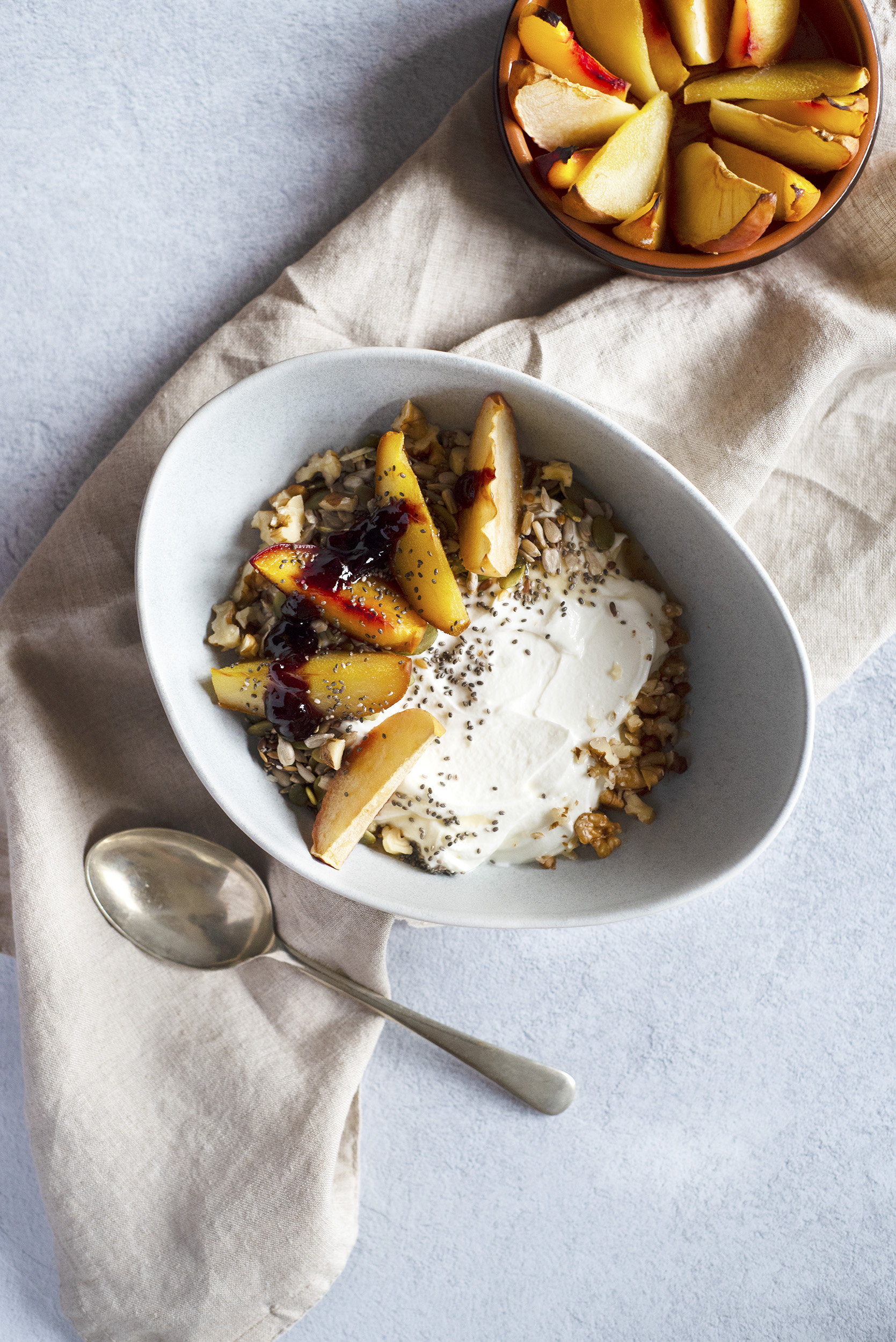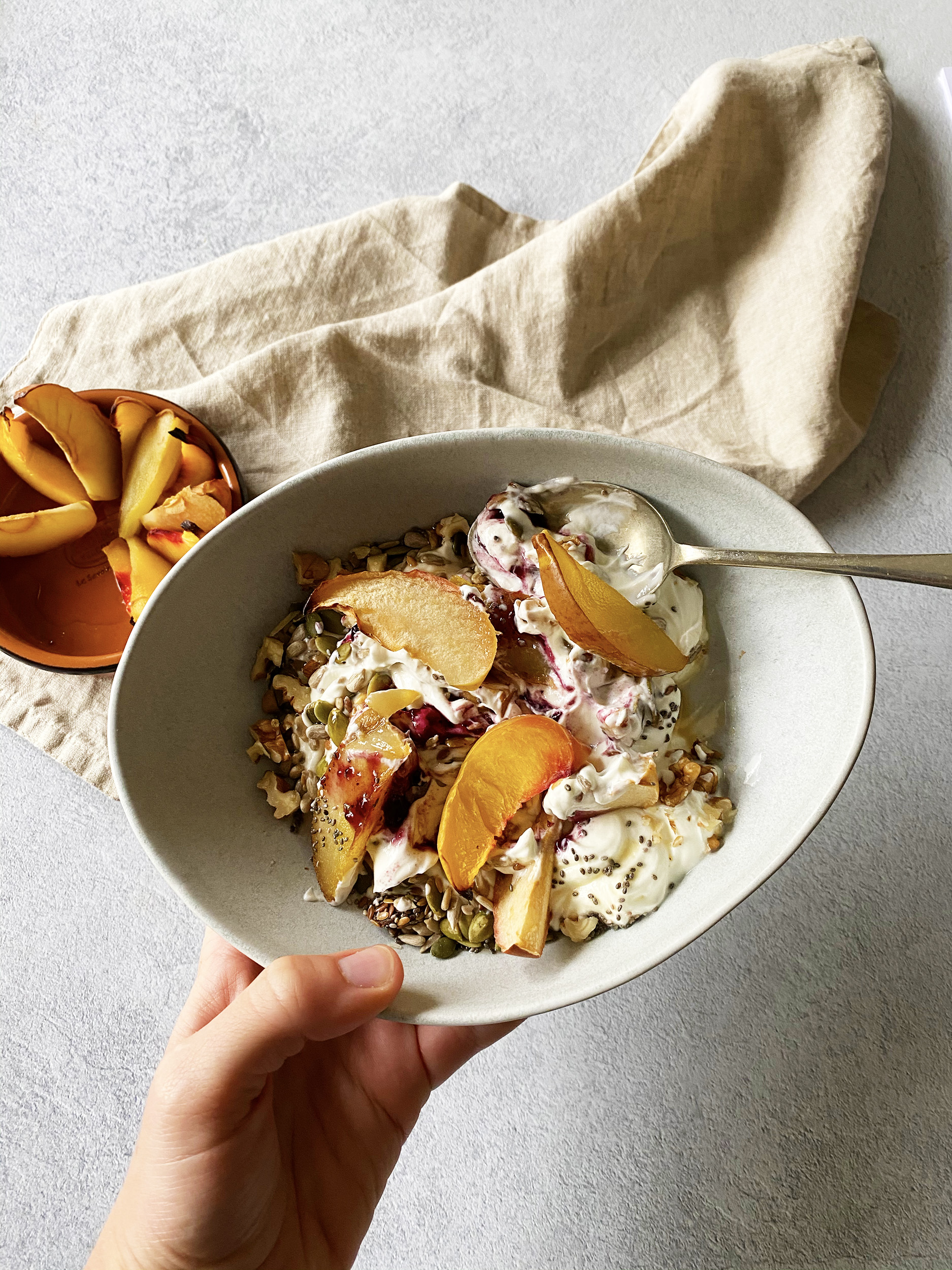Recently everyone I see seems to have the same problem – not enough time in the day. We all race around like headless chickens, darting from one task to another, checking emails on our phones as we balance a newborn in one arm and a giant list of things to do in the other. Saying we are pressed for time would be the understatement of the century.
Some of us handle this better than others, however, for the most part, our distinct lack of time results in the same thing for everyone. We all try to cut corners and pull time from one task to another.
All too often we grab our food on the go and wolf it down as we dart from job to job. Eating lunch at our work station as we read an email or fill out a spreadsheet has somehow become normal. If that’s not bad enough, once we get home a good proportion of us are guilty of idly eating dinner while we watch our favourite TV show or try and get past the opening credits of a movie.
There are so many things that are less than ideal about this situation ,however, right now the focus is on the speed at which we eat and our inability to chew our food properly.
Chewing affects your digestion
Contrary to popular belief digestion doesn’t begin in your stomach but in your mouth with digestive enzymes in your saliva starting to break down starches into simple sugars. Due to this process if you were to chew on as salted cracker for long enough it would actually start to taste sweet! (1,2)
Taking your time to chew and thus coat your food in saliva provides
vital lubrication for food particles as they move towards your stomach. No
chewing for long enough can cause indigestion, exacerbating IBS symptoms such
as bloating and wind.
Chewing helps trigger your satiety mechanisms which help you identify when you’re full. Trouble is that there’s a bit of lag time between you actually being full and your body realising it is full therefore signalling to you to stop eating. The less you chew the faster you eat the more you consume before you realise your full only by then it’s too late! Meaning that you’re more likely to pack on the pounds if you’re not chewing properly! (3)
Chewing reduces your risk of food poisoning. When you chew another
enzyme found in the saliva called lysozyme destroys food-borne pathogens which
can cause certain illnesses or even lead to death. Chewing your food properly
helps prevent this.
Do you ever see undigested food in your stool? If it’s anything other than sweet corn there’s a good chance you’re not chewing properly. Now if you’re not chewing your food enough to break it down properly to the extent that you can still work out what it is in your poop there is a very strong chance that you’re not absorbing the valuable nutrients from the food in the first place, which means that you can eat an exceptional diet and still not benefit from all the positive effects of your food.
Chewing your food slowly has been shown to aid in your ability to concentrate on tasks performed after meals. (4)
In short, the more you chew the more your body benefits.
Rules for eating:
- In the ideal world, you want to grind your food down into a soft pulp extracting all the flavour from your mouthful before swallowing it.
- If at all possible eat with family or friends, sharing a meal helps slow the rate at which you eat. There are many other positive mental effects achieved by sharing a meal in this scenario.
- Always sit at a table, and no, your desk does not qualify as a table.
- Take the time to enjoy preparing your food, breathe in the wonderful rich smells that food emits. In doing so you’re preparing your body to receive the nutritious fuel it requires. As soon as you see and smell the food your body prepares to receive it. In effect, your digestive process is already in motion!
- Take ten deep slow breaths to allow your body to enter a calm state before taking your first bite.
- Chew slowly and steadily.
- Do not turn your fork into a shovel! Take
smaller portions of food into your mouth to allow yourself the space necessary
to chew.
- Finish your mouthful before preparing the next mouthful .
In summary, take your time, enjoy your food, it’s not a race and in this instance being the first one to finish is not necessarily a good thing!
For those of us lucky enough to live in the Western world where food is abundant we are afforded the luxury of ‘living to eat’ rather than ‘eating to live’. Which is something to be grateful for every time you take a mouthful.
So enjoy your food, love your food and for goodness sake, chew your food!

